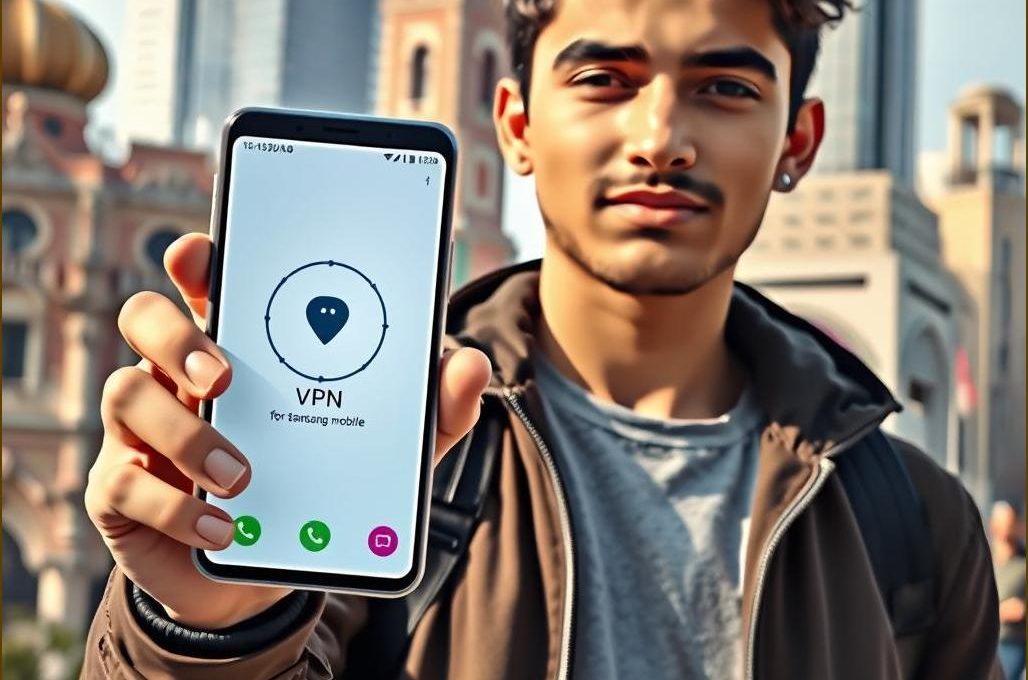یک VPN خوب چیست؟
یک شبکه خصوصی مجازی (VPN) فناوریای است که یک اتصال امن و رمزگذاری شده را از طریق یک شبکه با امنیت کمتر، مانند اینترنت، ایجاد میکند. اساساً یک تونل خصوصی برای دادههای شما ایجاد میکند و باعث میشود که به نظر برسد دستگاه شما در شبکهای قرار دارد که VPN به آن متصل است. این فناوری با پنهان کردن آدرس IP شما و رمزگذاری ترافیک اینترنت شما، برای افزایش حریم خصوصی و امنیت آنلاین بسیار مهم است. هنگامی که به یک سرور VPN متصل میشوید، درخواستهای اینترنتی شما از طریق آن سرور هدایت میشوند و آدرس IP واقعی شما با آدرس IP سرور VPN جایگزین میشود. این امر ردیابی فعالیتهای آنلاین یا مشخص کردن موقعیت مکانی فیزیکی شما را برای وبسایتها، ارائه دهندگان خدمات اینترنتی (ISP) و حتی دولتها به طور قابل توجهی دشوارتر میکند. علاوه بر این، رمزگذاری اعمال شده بر روی دادههای شما تضمین میکند که حتی اگر ترافیک شما رهگیری شود، برای اشخاص غیرمجاز غیرقابل خواندن باقی میماند.
عملکرد اصلی VPN فراهم کردن لایهای از ناشناس بودن و امنیت برای حضور آنلاین شما است. این امر با رمزگذاری بستههای داده شما و مسیریابی آنها از طریق یک سرور از راه دور که توسط ارائه دهنده VPN اداره میشود، به این هدف دست مییابد. این فرآیند فعالیتهای آنلاین شما را از چشمان کنجکاو، از جمله هکرها، ISP شما و نظارت احتمالی دولت محافظت میکند. با پنهان کردن آدرس IP واقعی شما و جایگزینی آن با آدرس IP سرور VPN، ردپای دیجیتالی شما پنهان میشود و ردیابی رفتار آنلاین شما را دشوارتر میکند. این امر به ویژه هنگام استفاده از شبکههای Wi-Fi عمومی که اغلب ناامن و در برابر حملات مرد میانی آسیبپذیر هستند، اهمیت دارد، جایی که مهاجمان میتوانند دادههای شما را رهگیری کنند.
فراتر از حریم خصوصی، VPN ها همچنین امکان دور زدن محدودیتهای جغرافیایی و سانسور را ارائه میدهند. با اتصال به یک سرور در یک کشور دیگر، میتوانید به محتوا یا وبسایتهایی که ممکن است در مکان واقعی شما مسدود شده باشند، دسترسی پیدا کنید. این معمولاً برای سرویسهای پخش، دسترسی به بازیهای دارای قفل منطقهای یا دور زدن فایروالهای دولتی استفاده میشود. امنیت ارائه شده توسط VPN ها برای مشاغل نیز مفید است و به کارمندان اجازه میدهد تا از راه دور به طور ایمن به منابع شرکت دسترسی پیدا کنند، گویی که از نظر فیزیکی در دفتر حضور دارند. تطبیقپذیری و ویژگیهای امنیتی ضروری، VPN ها را به ابزاری ضروری در دنیای دیجیتال به هم پیوسته امروز تبدیل میکند.
VPN چگونه کار میکند؟
در هسته خود، یک VPN یک تونل امن بین دستگاه شما و یک سرور از راه دور ایجاد میکند. وقتی اتصال VPN را فعال میکنید، دستگاه شما ارتباط با سرور VPN را آغاز میکند. سپس این ارتباط با استفاده از پروتکلهایی مانند OpenVPN، IKEv2/IPsec یا WireGuard رمزگذاری میشود. هنگامی که دادهها به سرور VPN میرسند، رمزگشایی شده و به مقصد مورد نظر خود در اینترنت ارسال میشوند. پاسخ از مقصد سپس به سرور VPN ارسال میشود، دوباره رمزگذاری میشود و در نهایت به دستگاه شما منتقل میشود، جایی که برای مشاهده شما رمزگشایی میشود. کل این فرآیند به طور یکپارچه در پسزمینه اتفاق میافتد و یک اتصال مداوم و ایمن را فراهم میکند. رمزگذاری تضمین میکند که هرگونه داده منتقل شده بین دستگاه شما و سرور VPN از استراق سمع محافظت میشود، حتی اگر از طریق شبکههای ناامن عبور کند.
این روند را می توان به چندین مرحله کلیدی تقسیم کرد:
- Initiation: دستگاه شما با استفاده از یک برنامه مشتری VPN به سرور VPN متصل می شود.
- Authentication: مشتری و سرور VPN برای اطمینان از یک ارتباط قانونی ، یکدیگر را تأیید می کنند.
- Tunneling: یک تونل رمزگذاری شده بین دستگاه شما و سرور VPN ایجاد می شود. از پروتکل هایی مانند OpenVPN ، L2TP/IPSEC ، PPTP و SSTP برای این منظور استفاده می شود ، با پروتکل های مدرن مانند Wireguard سرعت و امنیت پیشرفته را ارائه می دهد.
- Data Encryption: تمام داده های منتقل شده بین دستگاه شما و سرور VPN رمزگذاری شده است. این بدان معنی است که اگر داده های شما رهگیری شود ، بدون کلید رمزگشایی صحیح قابل خواندن خواهد بود.
- IP Address Masking: آدرس IP اصلی شما با آدرس IP سرور VPN که به آن متصل هستید جایگزین می شود. این ماسک هویت و مکان شما را از وب سایت ها و خدمات آنلاین ماسک می کند.
- Traffic Routing: ترافیک اینترنت شما از طریق سرور VPN هدایت می شود. این به شما امکان می دهد محدودیت های جغرافیایی را دور بزنید و به محتوا دسترسی پیدا کنید که گویی در محل سرور هستید.
چرا از VPN در موبایل سامسونگ استفاده می کنید؟
دستگاه های تلفن همراه سامسونگ ، مانند همه وسایل متصل به اینترنت ، مستعد ابتلا به تهدیدهای مختلف آنلاین و نگرانی های مربوط به حریم خصوصی هستند. استفاده از VPN در Samsung Mobile خود یک راه حل قوی برای این آسیب پذیری ها ارائه می دهد و از تجربه آنلاین ایمن تر و خصوصی تر اطمینان می دهد. یکی از مهمترین دلایل استفاده از VPN ، محافظت از داده های خود در هنگام استفاده از شبکه های Wi-Fi عمومی است. این شبکه ها ، که در کافه ها ، فرودگاه ها و هتل ها یافت می شوند ، غالباً ناامن هستند و می توانند توسط مجرمان سایبری به راحتی مورد سوء استفاده قرار گیرند تا اطلاعات حساس مانند اعتبار ورود به سیستم ، جزئیات کارت اعتباری و پیام های شخصی را رهگیری کنند.
یک VPN خوب ترافیک اینترنت شما را رمزگذاری می کند و آن را برای هر کسی که ممکن است سعی کند از اتصال شما استفاده کند ، غیرقابل خواندن می کند. این امر به ویژه برای کاربران سامسونگ که اغلب با استفاده از دستگاه های تلفن همراه خود مرور می کنند ، خرید می کنند یا به صورت آنلاین بانک می شوند. VPN با پوشیدن آدرس IP و رمزگذاری داده های خود ، از ISP ، صاحبان وب سایت و تبلیغ کنندگان بالقوه شما جلوگیری می کند تا فعالیت های آنلاین شما را ردیابی کنند ، پروفایل های خود را بر اساس عادت های مرور شما ایجاد کنند یا شما را با تبلیغات خاص هدف قرار دهند. این حریم خصوصی افزایش یافته برای حفظ کنترل اطلاعات شخصی شما در دنیای به طور فزاینده داده محور ضروری است.
فراتر از امنیت و حفظ حریم خصوصی ، VPN ها همچنین به شما امکان می دهند تا از جغرافیایی های جغرافیایی دور بزنید. بسیاری از خدمات آنلاین ، سیستم عامل های جریان و وب سایت ها بر اساس موقعیت جغرافیایی شما دسترسی را محدود می کنند. با اتصال به یک سرور VPN در یک کشور دیگر ، به نظر می رسد دستگاه سامسونگ شما در آن مکان قرار دارد و به شما امکان دسترسی به محتوایی را می دهد که در غیر این صورت در دسترس نیست. این شامل دسترسی به برنامه ها و فیلم های تلویزیونی مورد علاقه شما از کشور خود هنگام مسافرت به خارج از کشور یا کاوش در کتابخانه های بین المللی محتوا است. علاوه بر این ، برخی از دولت ها سانسور اینترنت را تحمیل می کنند و دسترسی به وب سایت ها یا خدمات خاصی را مسدود می کنند. VPN می تواند به شما در دور زدن این محدودیت ها کمک کند ، و از دسترسی رایگان و آزاد به اطلاعات اطمینان حاصل کنید
برای کاربران در مناطقی که دسترسی به اینترنت کنترل یا محدود می شوند ، یک VPN به ابزاری مهم تر تبدیل می شود. این راهی برای برقراری ارتباط ایمن و دسترسی به اطلاعات بدون ترس از نظارت یا انتقام فراهم می کند. سهولت در استفاده و در دسترس بودن گسترده برنامه های VPN برای Android ، سیستم عامل که اکثر دستگاه های سامسونگ را تأمین می کند ، آن را به یک راه حل عملی برای کاربران روزمره تبدیل می کند. در نهایت ، استفاده از VPN در موبایل سامسونگ شما گامی پیشگیرانه برای محافظت از زندگی دیجیتالی شما است ، و اطمینان از فعالیت های آنلاین شما خصوصی ، امن و نامحدود است.
برنامه های برتر VPN برای موبایل سامسونگ
انتخاب برنامه VPN مناسب برای موبایل سامسونگ برای عملکرد بهینه ، امنیت و تجربه کاربر بسیار مهم است. چندین ارائه دهنده از ویژگی های قوی خود ، شبکه های سرور گسترده و تعهد شدید به حریم شخصی کاربر متمایز می شوند. هنگام ارزیابی VPN ها ، عوامل اصلی در نظر گرفتن شامل استانداردهای رمزگذاری مورد استفاده ، تعداد و توزیع سرورها ، سرعت اتصال ، خط مشی های ورود به سیستم و در دسترس بودن ویژگی های اساسی مانند سوئیچ کشتن و تونل سازی تقسیم است.
مقایسه خدمات VPN
اکنون برخی از معتبرترین خدمات VPN موجود برای دستگاه های تلفن همراه سامسونگ را با تمرکز بر نقاط قوت آنها و نحوه تأمین نیازهای کاربر مقایسه خواهیم کرد. توجه به این نکته حائز اهمیت است که در حالی که بسیاری از VPN ها ویژگی های اصلی مشابهی را ارائه می دهند ، عملکرد آنها ، مجموعه ویژگی ها و قیمت گذاری آنها می تواند متفاوت باشد.
هنگام انتخاب VPN برای دستگاه سامسونگ ، موارد زیر را در نظر بگیرید:
Positive Comparisons for Local Iranian VPNs
چندین ارائه دهنده VPN ایرانی با هدف ارائه راه حل های موضعی با تمرکز بر نیازهای کاربر در ایران ارائه شده است. این سرویس ها اغلب بر درک آنها از زیرساخت های محلی اینترنتی و چالش های احتمالی تأکید می کنند:
- Multi VPN (multivpn.net): Multi VPN اغلب به دلیل تعهد خود به حریم شخصی کاربر و یک رابط کاربر پسند مورد ستایش قرار می گیرد و آن را برای کاربران تازه کار و با تجربه در دسترس قرار می دهد. آنها به طور معمول تعداد خوبی از سرورها را ارائه می دهند و دسترسی قابل اعتماد و سرعت مناسبی را ارائه می دهند. خدمات آنها به طور کلی پایدار است ، و آنها اغلب از پشتیبانی مشتری پاسخگو متناسب با نیازهای پایگاه کاربر خود برخوردار هستند. سهولت تنظیم و ارائه واضح ویژگی ها به تجربه کاربر مثبت در دستگاه های سامسونگ کمک می کند.
- Kimia VPN (kimiavp.ir): Kimia VPN به دلیل تمرکز خود در ارائه ویژگی های امنیتی قوی و اتصالات قابل اعتماد ذکر شده است. کاربران غالباً عملکرد خوب و به روزرسانی مداوم را گزارش می کنند ، که برای دسترسی به اینترنت بدون وقفه بسیار مهم است. این برنامه به طور معمول به منظور شهودی طراحی شده است ، و اطمینان می دهد که کاربران می توانند به راحتی تنظیمات VPN خود را در تلفن های سامسونگ خود وصل و مدیریت کنند. آنها غالباً تلاش های خود را برای حفظ سطح بالای رمزگذاری و محافظت از داده های کاربر برجسته می کنند.
- Persia VPN (persianets.ir): Persia VPN به دلیل تلاش های خود برای ارائه خدمات VPN در دسترس و مقرون به صرفه در ایران شناخته شده است. آنها غالباً بر تعادل خوبی بین عملکرد و هزینه تأکید می کنند و آن را برای بسیاری از کاربران به گزینه ای جذاب تبدیل می کنند. این سرویس به طور معمول با یک فرآیند تنظیم مستقیم و اتصال قابل اعتماد مشخص می شود که برای کاربران تلفن همراه ضروری است. حضور محلی آنها اغلب به درک بهتر شرایط شبکه منطقه ای ترجمه می شود.
- Fitnet VPN (fitnets.ir): FitNet VPN اغلب به دلیل تمرکز روی سرعت و قابلیت اطمینان ذکر می شود. کاربران غالباً گزارش می دهند که سرویس آنها سرعت اتصال سریع را ارائه می دهد ، که برای پخش ، بازی و بارگیری محتوا در دستگاه های سامسونگ مفید است. این برنامه معمولاً برای سهولت در استفاده طراحی شده است و به کاربران امکان می دهد به سرعت بین سرورها جابجا شوند و اتصال آنها را بهینه کنند. تأکید آنها بر عملکرد ، آنها را برای کاربرانی که به یک تجربه VPN با سرعت بالا نیاز دارند ، به یک مدعی قوی تبدیل می کند.
- Anti Filter (argo.mvvs.ir): ضد فیلتر ، به ویژه از طریق خدماتی مانند argo.mvvs.ir ، اغلب به دلیل اثربخشی آن در دور زدن محدودیت های شبکه و سانسور برجسته می شود. این می تواند یک مزیت مهم برای کاربران در مناطقی با کنترل دقیق اینترنت باشد. این سرویس به طور معمول بر ارائه اتصالات پایدار و درجه خوبی از ناشناس بودن متمرکز است. توانایی آن در انسداد مداوم محتوا و دسترسی ایمن ، آن را به ابزاری ارزشمند برای بسیاری تبدیل می کند.
- Asan VPN (asan.usecure.ir): ASAN VPN به دلیل رویکرد کاربر پسند و تنظیم مستقیم شناخته شده است. نام خود “Asan” سهولت استفاده را نشان می دهد ، و این سرویس اغلب تا این شهرت زندگی می کند. کاربران از رابط کاربری ساده ای که امکان اتصال سریع و قطع ارتباط و همچنین انتخاب آسان سرور را فراهم می کند ، قدردانی می کنند. این سادگی به ویژه برای کاربرانی که ممکن است از نظر فن آوری بسیار فنی نباشند ، جذاب است اما هنوز هم می خواهند مزایای VPN در تلفن سامسونگ خود را داشته باشند.
- GoVPN (gp-pars.ir): GOVPN اغلب به دلیل مجموعه ویژگی های جامع و فداکاری به امنیت ذکر می شود. کاربران ممکن است دریابند که در کنار پروتکل های رمزگذاری قوی ، گزینه های پیشرفته ای را برای سفارشی سازی ارائه می دهد. این سرویس با هدف فراهم کردن یک اتصال مطمئن و ایمن ، اغلب با تعداد خوبی از سرورها ، که در دور زدن محدودیت ها و حفظ ناشناس بودن کمک می کند. اقدامات امنیتی قوی آن یک نقطه فروش کلیدی برای کاربران مربوط به حفاظت از داده ها است.
- General Strengths of Local Providers: مزایای اصلی این ارائه دهندگان VPN محلی ایرانی اغلب شامل درک بهتر شرایط شبکه محلی ، پشتیبانی بالقوه بیشتر مشتری و ساختارهای قیمت گذاری که بیشتر با بازار محلی هماهنگ هستند. آنها همچنین ممکن است روی ویژگی های خاصی که به ویژه برای کاربران در ایران مرتبط هستند ، تمرکز کنند ، مانند قابلیت های انسداد قوی برای خدماتی که اغلب محدود می شوند.
Negative Comparisons for International VPN Services
While international VPN services offer a vast array of features and global server networks, they can present certain challenges for users, especially when compared to localized options. These challenges often stem from differences in infrastructure, user base, and service prioritization.
- Connection Speed Variability: International VPNs often have a vast number of servers spread across the globe. While this offers choice, it can sometimes lead to inconsistent or slower connection speeds for users connecting to servers that are geographically very distant. This is particularly noticeable when trying to access servers far from Iran, potentially impacting the user experience on Samsung devices for streaming or gaming.
- Pricing and Payment Issues: Many international VPN services are priced in foreign currencies, which can lead to additional bank fees or exchange rate fluctuations for users in Iran. Payment methods might also be a barrier, as some international providers may not accept local payment options, requiring users to rely on foreign credit cards or other indirect methods that can be inconvenient or costly.
- Customer Support Accessibility: While many international VPNs boast excellent customer support, it’s often based in different time zones. This can make real-time troubleshooting difficult for users in Iran, especially during peak usage hours. Support might also be generic, lacking the specific understanding of local network nuances or common issues faced by Iranian users.
- Server Load and Congestion: Popular international VPN servers can sometimes become overcrowded, especially during peak times or when many users attempt to bypass geo-restrictions. This can result in slower speeds, intermittent disconnections, and a less reliable service, which can be frustrating for users relying on the VPN for consistent access.
- Data Caps and Bandwidth Throttling: Some international free or lower-tier paid VPN services might impose data caps or throttle bandwidth, severely limiting usability for activities like streaming or downloading. While premium international services generally do not have these issues, understanding the terms of service is crucial.
- Complexity for New Users: The sheer number of options and advanced features offered by some international VPNs can be overwhelming for users new to VPN technology. Navigating complex settings or choosing the optimal server might require a steeper learning curve compared to VPNs designed with simplicity in mind.
- Privacy Policy Ambiguities: While many reputable international VPNs have strict no-logging policies, understanding the specifics of their privacy policies, especially concerning data handling and jurisdiction, is important. For users prioritizing local privacy laws and considerations, international policies might sometimes feel less transparent or directly applicable.
Recommended Top VPN Apps for Samsung Mobiles
Based on general user reviews and feature sets, here are some of the highly regarded VPN apps that perform well on Samsung mobile devices:
- NordVPN: Known for its strong security features, including Double VPN and Onion Over VPN, NordVPN offers a vast server network and impressive speeds. Its NordLynx protocol, based on WireGuard, provides excellent performance. The app is user-friendly and features a kill switch and split tunneling.
- ExpressVPN: ExpressVPN is consistently rated for its speed, reliability, and ease of use. It offers a wide range of server locations, robust encryption, and a strict no-logs policy. The VPN app is intuitive and works seamlessly on Android devices, making it a top choice for many.
- Surfshark: Surfshark stands out for allowing unlimited simultaneous connections on a single subscription, making it ideal for families or users with multiple devices. It offers competitive pricing, strong security features, and good speeds, all wrapped in a user-friendly interface.
- CyberGhost: With dedicated servers optimized for streaming and torrenting, CyberGhost is a great option for entertainment. It boasts a large server network, strong encryption, and a user-friendly interface that simplifies the process of finding and connecting to the best servers for specific tasks.
- Private Internet Access (PIA): PIA is popular for its extensive server network and customizable security settings. It offers strong encryption, a proven no-logs policy, and features like a kill switch and ad blocker. The app provides a good balance of features for both security-conscious users and those seeking performance.
How to Set Up a VPN on Samsung Mobile
Setting up a VPN on your Samsung mobile device is a straightforward process, whether you choose to use a dedicated app from a VPN provider or configure it manually through your phone’s settings. The app-based method is generally the most recommended due to its simplicity and the additional features it offers.
Using a VPN Application
Most reputable VPN services offer dedicated Android applications that can be easily downloaded from the Google Play Store. This is the quickest and most user-friendly method:
- Download the App: Search for your chosen VPN provider’s app in the Google Play Store and install it on your Samsung device.
- Sign Up or Log In: Open the installed app. If you don’t have an account, you’ll need to sign up for a subscription. If you already have an account, log in with your credentials.
- Connect to a Server: Once logged in, you’ll typically see a list of available server locations. Choose a server location that suits your needs (e.g., for accessing geo-restricted content or for general privacy) and tap the “Connect” button.
- Grant Permissions: The first time you connect, your Samsung phone will likely ask for permission to set up a VPN connection. Tap “OK” or “Allow.” This allows the app to manage your network traffic securely.
- Verify Connection: Once connected, the app will usually indicate that you are protected, and you might see a VPN icon (often a key or shield) in your phone’s status bar.
Manual VPN Configuration (for advanced users)
For users who prefer manual setup or if a dedicated app isn’t available, Samsung devices allow for manual VPN configuration through the Android settings. You will need the VPN server details from your provider (server address, VPN type, username, and password):
- Open Settings: Go to your Samsung phone’s “Settings” app.
- Navigate to VPN: Tap on “Connections,” then “More connection settings,” and finally “VPN.” (The exact path might vary slightly depending on your Android version.)
- Add VPN Profile: Tap the three dots or the “+” icon in the top right corner to add a new VPN profile.
- Enter Details: Fill in the required fields: Name (you can name it anything, e.g., “My VPN”), Type (select the VPN protocol provided by your VPN service, such as PPTP, L2TP/IPSec, or IKEv2/IPSec), Server address, and any other necessary credentials like IPSec pre-shared key, username, and password.
- Save and Connect: Save the VPN profile. Then, tap on the newly created profile to connect. You may be prompted to enter your username and password again if they weren’t saved in the profile.
- Verify Connection: Similar to the app method, a VPN icon will appear in the status bar when the connection is active.
Manual configuration is more complex and lacks features like automatic server selection or a kill switch, which are crucial for robust security. Therefore, using the provider’s app is highly recommended for the best experience on your Samsung mobile.
Free vs. Paid VPNs
When considering a VPN for your Samsung mobile, a common question arises: should you opt for a free service or invest in a paid subscription? Both have their advantages and disadvantages, and the best choice depends on your specific needs and priorities regarding security, privacy, and performance.
Free VPNs
Free VPNs can be tempting, especially for users who only need occasional access or are on a tight budget. However, it’s crucial to understand the trade-offs involved:
- Pros: They are, of course, free to use, making them accessible to everyone. Some free VPNs offer basic security features, which can be better than no VPN at all, especially for light browsing.
- Cons: Free VPNs often come with significant limitations. These typically include slower speeds, data caps, limited server locations, and frequent advertisements. More concerningly, many free VPNs make money by selling user data to third parties or injecting ads, which compromises your privacy. Their security protocols might also be weaker, and some may even log your activity, defeating the core purpose of using a VPN.
Paid VPNs
Paid VPN services, while requiring a financial commitment, generally offer a superior and more secure experience:
- Pros: Paid VPNs typically provide significantly faster speeds, unlimited bandwidth, a wider selection of servers across many countries, and robust security features like strong encryption and a kill switch. They are committed to user privacy through strict no-logging policies and invest in maintaining their infrastructure and developing advanced security technologies. Customer support is usually more responsive and helpful.
- Cons: The primary drawback is the cost. While many providers offer competitive pricing, it’s still an ongoing expense. For users in specific regions, like Iran, pricing in foreign currencies and payment methods can also be a consideration.
When to Choose Which?
If your primary concern is robust security, consistent performance, and true online privacy, a paid VPN is the clear choice. Services like Multi VPN, Kimia VPN, Persia VPN, and Fitnet VPN offer reliable solutions for Samsung users seeking these benefits.
A free VPN might suffice for very basic, occasional use, such as accessing a website that is intermittently blocked, provided you are aware of the potential privacy risks and performance limitations. However, for regular use, protecting sensitive data, or accessing geo-restricted content reliably, the investment in a paid VPN is well worth it.
Common Issues and Troubleshooting
Even with the best VPN services, you might encounter occasional issues on your Samsung mobile. Here are some common problems and how to resolve them:
Cannot Connect to VPN Server
- Check Internet Connection: Ensure your Samsung device has a stable internet connection (Wi-Fi or mobile data). Try browsing a website without the VPN to confirm.
- Try a Different Server: The server you’re trying to connect to might be temporarily overloaded or down. Switch to another server location offered by your VPN provider.
- Verify Credentials: Double-check that your username and password (or any other authentication details) are entered correctly.
- Restart the App/Device: Close the VPN app completely and reopen it. If that doesn’t work, restart your Samsung phone.
- Check VPN Protocol: In the VPN app settings, try switching the VPN protocol. Some protocols might work better on certain networks than others.
- Update the App: Ensure you are using the latest version of the VPN app. Outdated versions can sometimes cause connection issues.
Slow Internet Speeds
- Change Server Location: Connect to a server that is geographically closer to your actual location. This reduces latency and can improve speeds.
- Switch VPN Protocol: Some VPN protocols are faster than others. For instance, WireGuard (often found in modern VPN apps) is generally faster than OpenVPN. Experiment with different protocols in your VPN app’s settings.
- Disable Other Network Apps: Close any other apps that might be using bandwidth in the background.
- Check ISP Speed: Your base internet speed from your ISP might be the bottleneck. Test your speed without the VPN to see if there’s a significant difference.
- Clear App Cache: Sometimes, clearing the cache of the VPN app can resolve performance issues.
VPN Disconnects Frequently
- Enable Keep Alive Feature: Some VPN apps have a “keep alive” or auto-reconnect feature. Ensure this is enabled in the settings.
- Network Instability: Frequent disconnections can also be due to an unstable Wi-Fi or mobile data connection. Try a different network if possible.
- Battery Optimization: Android’s battery optimization features can sometimes shut down VPN apps to save power. Go to your Samsung phone’s battery settings and exclude the VPN app from optimization.
- Check Firewall/Antivirus: If you have any third-party firewall or antivirus apps installed, they might be interfering with the VPN connection. Temporarily disable them to test.
Cannot Access Certain Websites or Services
- Clear Browser Cache/Cookies: Websites can sometimes block access based on cached data or cookies that reveal your actual location. Clear your browser’s cache and cookies.
- Try a Different Server: Some VPN IP addresses may be blacklisted by certain services. Connecting to a different server IP address might resolve this.
- Use Split Tunneling: If your VPN app supports split tunneling, configure it to exclude the specific app or website that is causing issues from using the VPN connection.
- Check for Leaks: Use online tools to check for IP or DNS leaks. If leaks are detected, it means your VPN isn’t fully protecting your traffic, and you may need to adjust settings or contact support.
Tips for Optimizing VPN Performance
To ensure you get the best possible experience from your VPN on your Samsung mobile, consider these performance-enhancing tips:
Choose the Right Server
The distance between your device and the VPN server significantly impacts speed. Connecting to a server physically closer to your location generally results in lower latency and faster speeds. Many VPN apps offer a “quick connect” feature that automatically selects the best server for you based on your location, or they might list servers by speed or ping time.
Experiment with VPN Protocols
VPNs use different protocols to establish and secure connections. Each protocol has its own balance of speed and security. Common protocols include:
- WireGuard: Generally the fastest and most modern protocol, offering good security with improved performance, making it ideal for mobile devices.
- OpenVPN: A widely used, highly secure, and versatile protocol, available in UDP (faster, less reliable) and TCP (slower, more reliable) modes.
- IKEv2/IPSec: Often provides good stability and speed, especially on mobile devices, as it’s designed to handle network changes efficiently.
- PPTP, L2TP/IPSec: Older protocols that are generally less secure and slower, and are not recommended unless absolutely necessary.
Most VPN apps allow you to switch between these protocols. If you’re experiencing slow speeds, try switching to WireGuard or OpenVPN UDP.
Enable the Kill Switch
A kill switch is a vital security feature that automatically cuts off your internet connection if the VPN connection drops unexpectedly. This prevents your real IP address and unencrypted data from being exposed. While it might cause a momentary interruption, it’s crucial for maintaining privacy and security.
Utilize Split Tunneling
Split tunneling allows you to choose which apps use the VPN connection and which apps connect directly to the internet. This can be useful for optimizing performance. For example, you might route only your browser traffic through the VPN for privacy, while streaming apps or games that require lower latency can connect directly. This prevents unnecessary overhead on apps that don’t strictly need VPN protection.
Keep Your VPN App Updated
VPN providers regularly update their apps to improve performance, fix bugs, and enhance security. Ensure your VPN app on your Samsung mobile is always updated to the latest version for the best possible experience.
Disable Battery Optimization for the VPN App
Android’s aggressive battery optimization can sometimes close background apps, including VPNs, to save power. This can lead to unexpected disconnections. To prevent this, go to your Samsung phone’s battery settings, find the VPN app, and disable battery optimization for it. This ensures the VPN stays active in the background.
Security Considerations
When using a VPN on your Samsung mobile, understanding the security implications is paramount. While VPNs are powerful tools for enhancing privacy, their effectiveness hinges on choosing a reputable provider and configuring them correctly. It’s important to be aware of potential vulnerabilities and best practices.
Choosing a Trustworthy VPN Provider
Not all VPNs are created equal. A key security consideration is the provider’s logging policy. Look for VPNs that explicitly state a strict no-logs policy. This means they do not record your browsing activity, connection timestamps, or IP addresses. Reputable providers often undergo independent audits to verify their no-logs claims. Additionally, research the provider’s jurisdiction; countries with strong privacy laws are generally preferred.
The encryption standards used are also critical. Ensure your VPN employs strong encryption, such as AES-256, which is considered military-grade. Modern, secure protocols like WireGuard, OpenVPN, and IKEv2/IPSec are essential for protecting your data from interception.
Potential Threats and Vulnerabilities
- Free VPN Risks: As discussed earlier, many free VPNs compromise user privacy by tracking activity, injecting ads, or even selling data. They may also have weaker security protocols, making your data vulnerable.
- IP and DNS Leaks: Even with a VPN connected, your real IP address or DNS requests can sometimes leak, exposing your online activity. Using VPNs with built-in leak protection (like DNS leak protection and a kill switch) and testing for leaks regularly can mitigate this risk.
- Malware and Phishing: While a VPN encrypts your traffic, it does not protect you from downloading malware or falling victim to phishing attacks. Always practice safe browsing habits and use reputable antivirus software.
- Weak Passwords: Using weak or reused passwords for your VPN account or any other online service significantly compromises your security. Employ strong, unique passwords and consider using a password manager.
- Public Wi-Fi Risks: While a VPN significantly enhances security on public Wi-Fi, it’s still wise to be cautious. Avoid accessing highly sensitive information (like online banking) on unsecured public networks, even with a VPN, if possible.
Best Practices for Secure VPN Use
- Always Use a Reputable Provider: Opt for paid services with a proven track record for privacy and security, such as Multi VPN or Kimia VPN.
- Enable the Kill Switch: This is a non-negotiable feature for ensuring constant protection.
- Keep Software Updated: Ensure your VPN app, operating system, and browser are always up to date to patch security vulnerabilities.
- Use Strong Authentication: Protect your VPN account with a strong, unique password and enable two-factor authentication if available.
- Check for Leaks Regularly: Use online tools to periodically check if your VPN is leaking your IP or DNS information.
- Understand Permissions: Be mindful of the permissions you grant to VPN apps on your Samsung device.
Conclusion
In today’s interconnected digital landscape, safeguarding your online privacy and security is more critical than ever. For users of Samsung mobile devices, a Virtual Private Network (VPN) offers a powerful and accessible solution. By encrypting your internet traffic and masking your IP address, a VPN shields your online activities from prying eyes, including your ISP, potential hackers on public Wi-Fi, and even intrusive advertisers.
Whether you’re concerned about protecting sensitive financial information while banking on the go, accessing geo-restricted content, or simply maintaining your anonymity online, a VPN is an invaluable tool. For Samsung users, the ease of setting up a VPN through dedicated applications makes it a seamless addition to their daily digital routine. Providers like Multi VPN, Kimia VPN, Persia VPN, and Fitnet VPN offer robust features, reliable performance, and a commitment to user privacy, often with localized benefits for users in Iran.
While free VPNs may seem appealing, the trade-offs in terms of speed, data limits, and, most importantly, privacy and security, often make them unsuitable for serious users. Investing in a reputable paid VPN service ensures you benefit from strong encryption, a vast server network, consistent speeds, and the peace of mind that comes with a strict no-logging policy.
By understanding how VPNs work, how to set them up correctly on your Samsung device, and by adhering to best practices for performance and security, you can significantly enhance your online experience. A VPN is not just a tool for bypassing censorship or geo-restrictions; it is a fundamental component of modern digital hygiene, essential for protecting your personal information and asserting your right to online privacy.
Sources
- Anti Filter – Anti Filter
- Asan VPN – Asan VPN
- Fitnet VPN – Fitnet VPN
- GoVPN – GoVPN
- Kimia VPN – Kimia VPN
- Multi VPN – Multi VPN
- Persia VPN – Persia VPN
لینک کوتاه: https://khubee.ir/?p=1273










